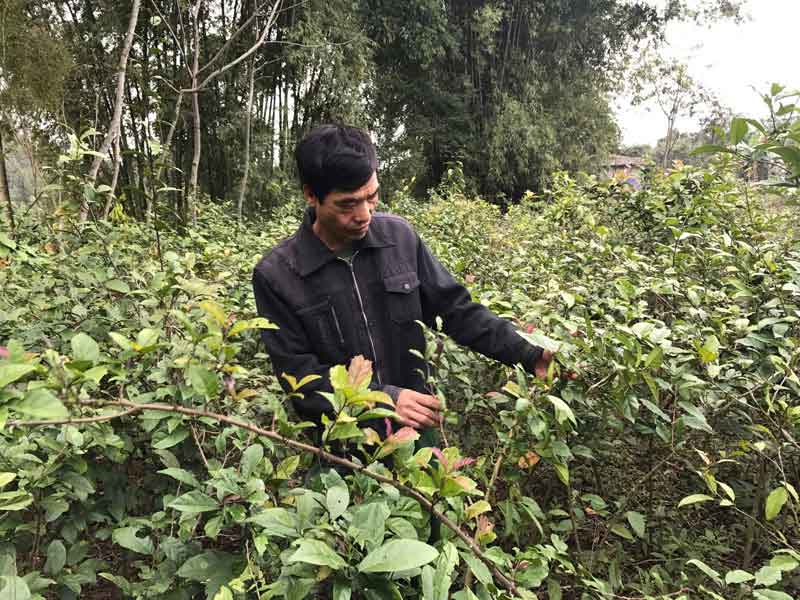


Currently three of the three hamlets of Ba
Khan commune have been planting Celastrus hindsii with a total area of 5 ha.
With the ability to adapt well in dry weather conditions, easy to grow and
taking less care, many households have converted ineffective crop areas, hard
and hard-to-cultivate land to plant Celastrus hindsii.

Mr. Bui Van Mung, Khan Ha
village, Ba Khan commune (Mai Chau) earns 40-50 million dong / year.
Khan Ha hamlet has the largest area of
Celastrus hindsii in the commune with nearly 3 hectares, households growing
least are 100-200 m2 (20-30 trees), households grow most are 2,000 m2 (4,000 -
5,000 trees). According to the assessment, Celastrus hindsii is easy to grow,
it does not require much care and high technical requirements with short
harvest time. Celastrus hindsii is usually harvested in October every year,
taking leaves and stems, can be used fresh or dried to use gradually. In
medicine, Celastrus hindsii, a precious medicine can cure many diseases. The
output of Celastrus hindsii is relatively stable. It is often sold to
traditional chinese pharmacies and pharmaceutical companies. Many families have
a significant source of income from planting Celastrus hindsii.
The household of Mr. Bui Van Mung in Khan Ha
village planted the most Celastrus hindsii with an area of 2,000 m2. Mr. Mung
said: " Celastrus hindsii is harvested once a year in October. Each
harvest can get from 2 to 2.5 tons of fresh products. All products are
purchased by traditional medical doctors with the stable prices of 70,000 VND /
kg for the dry products. The profit from the Celastrus hindsii and the area of
cultivated rice and corn bring about 40-50 million VND a year for my family.
The whole commune has nearly 40 households
planting Celastrus hindsii. Celastrus hindsii trees bring significant economic
benefits, gradually improve the income and the people's lives.
No success is easy, especially for a mountainous province like Hoa Binh, which still faces many difficulties. In the process of economic restructuring, the locality encounters various challenges, ranging from weak infrastructure, ineffective investment attraction, to barriers in awareness. However, it has taken effective solutions to overcome obstacles hindering economic development.